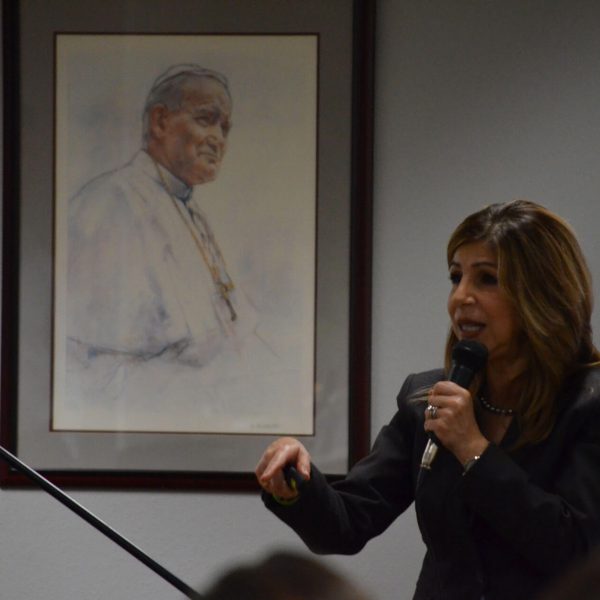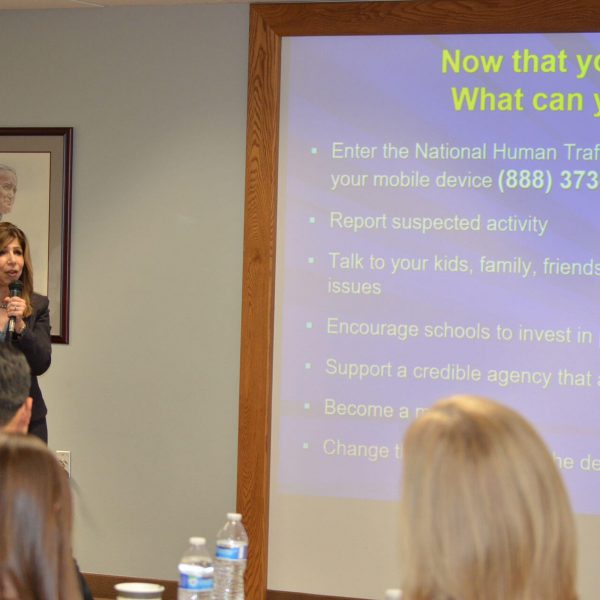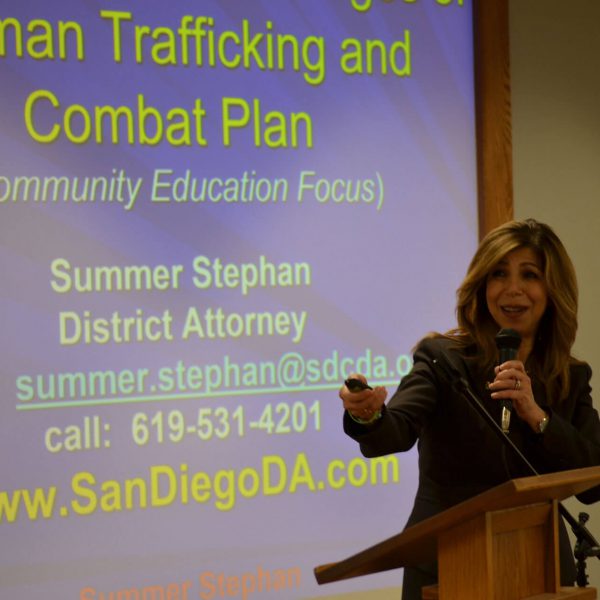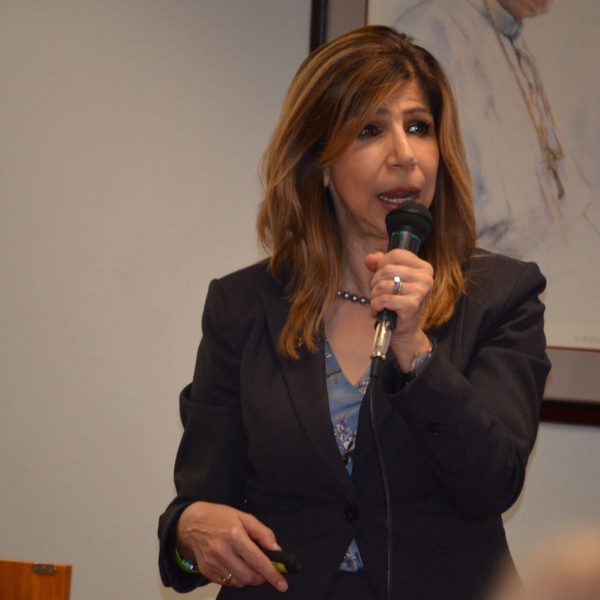SAN DIEGO — “Human trafficking is a crime against humanity.”
That’s what Pope Francis declared two years ago about modern slavery, which includes forced labor and prostitution, which he said preyed on “the least among us.”
Modern slavery does not just occur in some far-off land. The FBI ranked San Diego County as one of the 13 highest areas of commercial sexual exploitation, including of children, said District Attorney Summer Stephan.
She and two leaders of organizations that assist victims spoke at a forum at the diocesan Pastoral Center on Feb. 8, the International Day of Prayer and Awareness against Human Trafficking. It was organized by the diocesan Office for Social Ministry and Catholic Charities. The latter plans to launch an emergency shelter this spring to house up to 20 victims of human trafficking.
Another speaker, Amy Vance, from the Children of the Immaculate Heart, said the nonprofit is working with county and state authorities to open a home sometime this year for up to six girls who are victims of human trafficking, the only one of its kind in the county.
All speakers stressed that the need for services for these victims, estimated to number from 4,000 to 8,000 in the county, far outstrips their availability. Moreover, all said that everyone has a role to play to combat trafficking, which targets girls as young as 12 years old.
Nadine Toppozada, the director of Refugee and Human Trafficking Services at Catholic Relief Services, described in painful detail the characteristics of those victimized by traffickers, who meticulously groom them for a life of slavery.
“I can’t think of a more despicable crime than the buying and selling of other human beings, especially children and our more vulnerable and marginalized individuals,” she said.
She said the 20-bed emergency shelter her agency plans to open will be centrally located in San Diego County to provide the victims with everything they need to begin the physical and emotional healing process. The shelter is a natural extension for her department, which has provided a multidisciplinary approach to help refugees build new lives in this country for decades, she said.
Stephan explained that victims are divided into three populations:
• Children under age 18 induced into commercial sex, such as prostitution and pornography;
• Adults aged 18 or older induced into commercial sex through force, fraud or coercion;
• Children and adults induced to perform labor, particularly in the hospitality or construction industries, through force and fraud.
“Trafficking is one of the most profitable criminal enterprises and most difficult to detect,” she said.
After drug trafficking, sex trafficking is the county’s second largest underground economy, raking in $810 million in 2013 alone, she said, citing a study by researchers from the University of San Diego and Point Loma Nazarene University.
The study revealed that 85 percent of the traffickers were members of a gang and that at least 110 gangs in the county are involved in the sex economy.
She explained that 80 percent of trafficking victims in the county were U.S.-born, 12 percent were from Mexico and 8 percent from other countries.
The average age of victims entering the sex trade was 16 years, with most being lured in high school, most often by a classmate who introduced them to a trafficker.
These girls are most often living on the margins of society, such as in the foster care system or are homeless, making them easy prey to traffickers.
“When you’re 6 years old, no one’s dream is to grow up to be a prostitute,” Stephan said.
Her office welcomes opportunities to give a presentation about human trafficking to groups, including parishes. And she encouraged everyone to report suspicious activity at the National Human Trafficking Hotline at (888) 373-7888.
Human trafficking “is one of the gravest injustices imaginable,” said Kent Peters, director of the diocesan Social Ministry Office. “As Catholics, we are called to confront marginalization and these victims are about as marginalized as one can be.”
The Southern Cross







